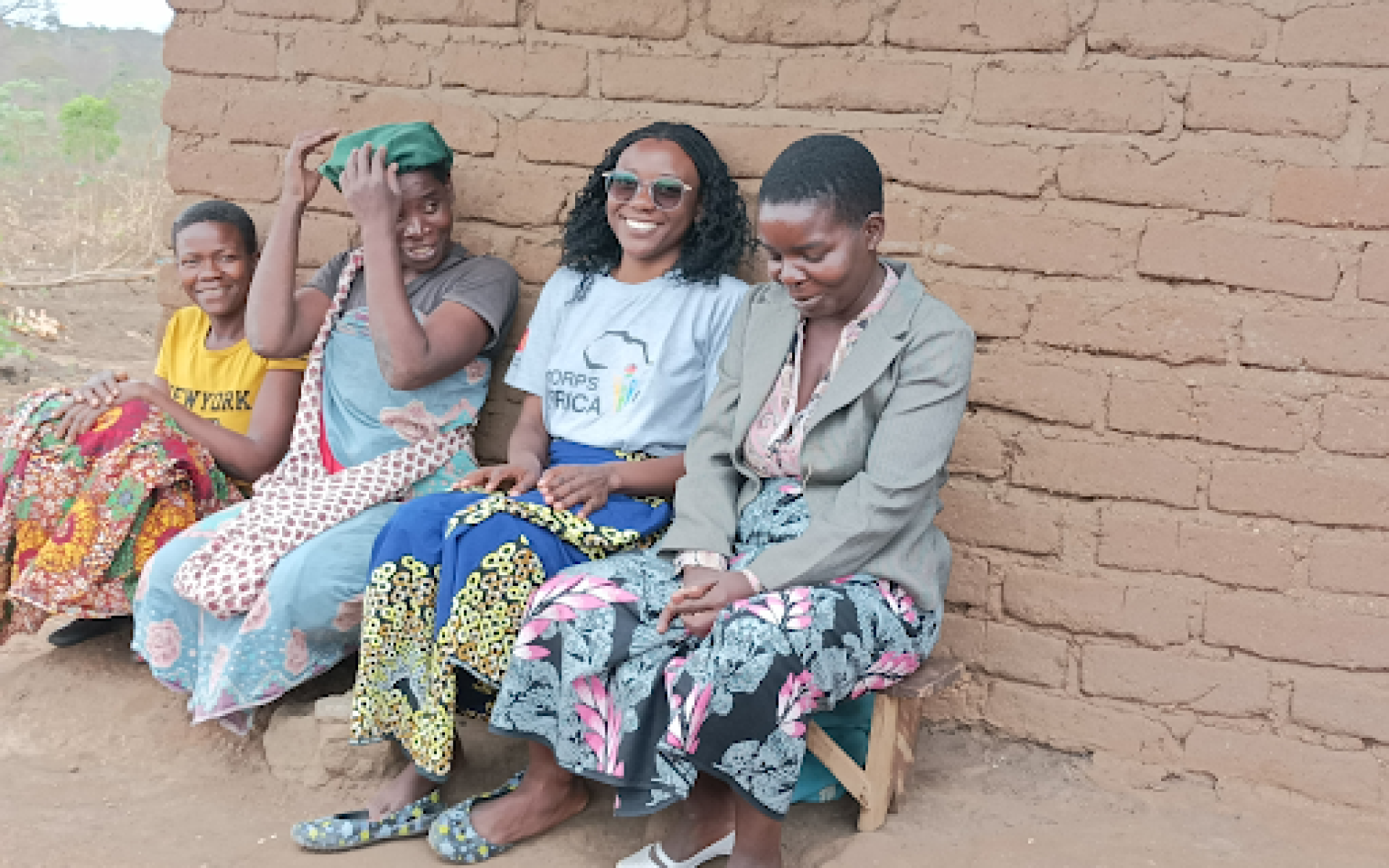Written by CorpsAfrica/Malawi Volunteer Ms. Etta Kamtokoma
I came across a call for applications wanting Volunteers released by CorpsAfrica on social media (WhatsApp to be exact). It wasn’t my first time learning about the organization; a friend was part of it, and I was always left in awe every time she posted pictures about her work and experience as a CorpsAfrica Volunteer. When the call came out, I immediately jumped right into it because why not? Plus, being a precariat then, I figured it wouldn’t hurt. Fast forward, I got accepted, and the Pre-service training happened. Nothing could have prepared me for what I would learn and experience that following month. The whole experience was nothing short of invigorating. On the first day, I remember seeing the eager faces of my fellow trainees (now Volunteers). All ecstatic to learn what CorpsAfrica truly embodies and what the next 10 months will look like for us. Being a development studies practitioner, I had studied community development, read about it, and had been part of it in my previous endeavors; however, CorpsAfrica provided me with a different lens on how to view and approach community development or, rather, community-led development. Before, I did not realize that a bottom-up approach could go any deeper. That the people themselves are the center and key to sustainable development. Capitalizing on the assets as opposed to the needs found in a community will produce results that have substance. People are the experts of their communities and as facilitators, our job is to pave the way for them to realize the kind of potential and capabilities they wield. I also got to appreciate Asset-Based community-led development where focus is poured onto the strengths of a community and not the weaknesses. Bring out people’s abilities, strengths, and varying ideas and build development goals on that very foundation. Put the people at the center to create a sense of ownership. As facilitators, we must understand that we are on others’ turf. The people are the drivers of their development, and we just catalyze the process. The human-centered design connotes that people should be put at the center. Facilitators make observations and build deep empathy with the people. The key is to listen to them. They are the ones with solutions to their challenges. There is only so much that can be achieved if a facilitator approaches a community with preconceived notions, but if the people lead, sustainable results are inevitable. Moving on, after finalizing the intensive training, the swearing-in ceremony approached and every trainee was excited to get sworn in and finally practice the tools and theories we were equipped with.
The day we got deployed, I was both nervous and excited. Nervous because I was parting ways with family, friends, and fellow Volunteers with whom I had familiarized myself within the past month. The camaraderie and friendships created have become a great pool of support. I was excited because I was prepared to get into new territory, jump out of my comfort zone, get accustomed to a whole new culture, learn from people to appreciate their authenticity, and together establish the desired change. Two months down, I can proudly say my experience here has surpassed my expectations. Meeting new people and learning from them through shared experiences has been fascinating. I will not lie when I first got here, it was nerve-wracking. “Will the people like me?” “Will they be willing to work with an outsider?”. My concerns vanished immediately upon experiencing the warmth of the people and how welcoming they were. Since then I’ve had people inviting me to their houses, church, to go sightseeing, etc. I have met a lot of people with the potential to impact their community. One of the key takeaways and something I have held close to me since deployment is that respect goes a long way if you intend to work with a group of people, especially one that is diverse. Before deployment, I believed my service and experience as an CorpsAfrica Volunteer would be a point of growth in multiple aspects of my life. Now I’m certain. As I continue to integrate, I intend to learn more, listen more, spark conversations that highlight differing ideas among people, and ultimately facilitate change.
Overall, my experience has taught me a lot already. Working with community members will not always be smooth sailing nonetheless the setbacks could be propelled into lessons learned. Accommodating different ideas will extend a wide array of options to explore hence it is necessary to engage as many different groups of people as possible. People are likely to bring out better results if they feel included and not sidelined. One thing I have toiled with since the beginning of my service is to steer away from assumptions. Asking community members a lot of questions and seeking clarity about issues to do with their community has kept me from creating half-baked notions about the community. I look forward to learning more and working with the people and eventually achieving sustainable outcomes.

